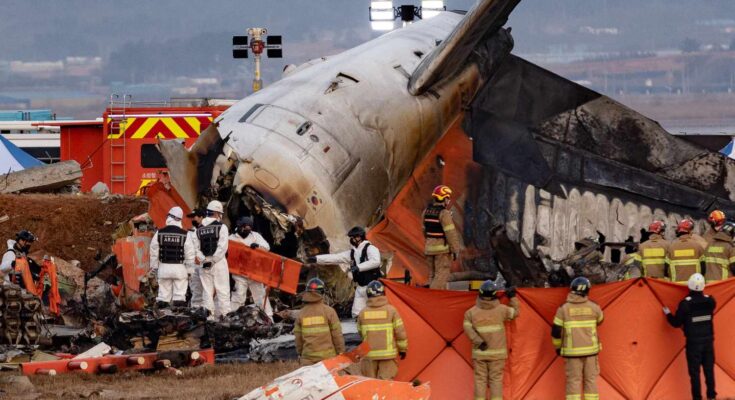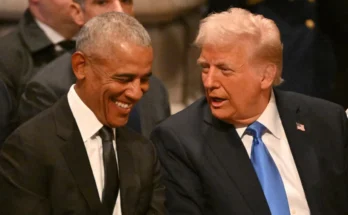Investigators believe that pilots on the Jeju Air Boeing 737 may have turned off the wrong engine before it crashed in December, killing 179 people on board.
After a bird strike, the plane attempted an emergency landing, but veered into a concrete embankment and exploded.
Upset by the report’s initial findings, the families of victims interrupted a news conference on July 19.
Investigators have found that the pilots of the Jeju Air Boeing 737 that crashed in December, killing 179 people on board, seemed to have shut off the wrong engine that was damaged in a bird strike, according to reports.
On Dec. 29, 2024, the aircraft was flying in from Bangkok when it “caught fire while landing” at Muan International Airport in Muan County, South Korea, at around 9:03 a.m. local time, Jeju Air CEO Kim E-bae confirmed in a previous statement. The plane then hit a concrete embankment after it went off the runway, resulting in the death of everyone on board, except for two flight attendants, South Korean news agency Yonhap and CNN previously reported.
A preliminary report published on Monday, Jan. 27, said that feathers and blood stains were found in both engines of the Boeing 737, according to CNN and the BBC.
But in the minutes following the bird strike, pilots appeared to have made fatal errors during the emergency landing, The New York Times, Reuters, and The Times reported.
After months of investigation, evidence showed that pilots turned off the left engine, instead of the right, according to the report reviewed by Reuters.
The engine that was turned off was not as badly damaged by the birds, and shutting it down removed the engine’s main source of thrust, The New York Times reported. With less electrical power, the plane landed without its landing gear in position, causing the devastating eruption. Investigators found that there were no issues with either engine before the crash, according to the paper.
:max_bytes(150000):strip_icc():focal(1127x1070:1129x1072):format(webp)/Jeju-Air-crash-in-Muan-International-Airport-123124-2-34229199e0454f8faac30a277b7cd990.jpg)
“If the pilots lost their displays after the bird strike, they may have had no clear indication of which engine was damaged,” aviation expert Joe Jacobsen told The New York Times.
South Korea’s Aviation and Railway Accident Investigation Board (ARAIB), the lead investigating agency, and Jeju Air did not immediately respond to PEOPLE’s requests for comment.
On Saturday, July 19, angry family members, who were informed of the report ahead of time, interrupted a news conference held by South Korean officials because they felt the report too readily focused on pilot error, according to reports. They believe that other factors, including the embankment, need to be considered in the investigation, Reuters reported.
“They’ve just blamed it all on the pilots,” one man shouted, according to The Times.



